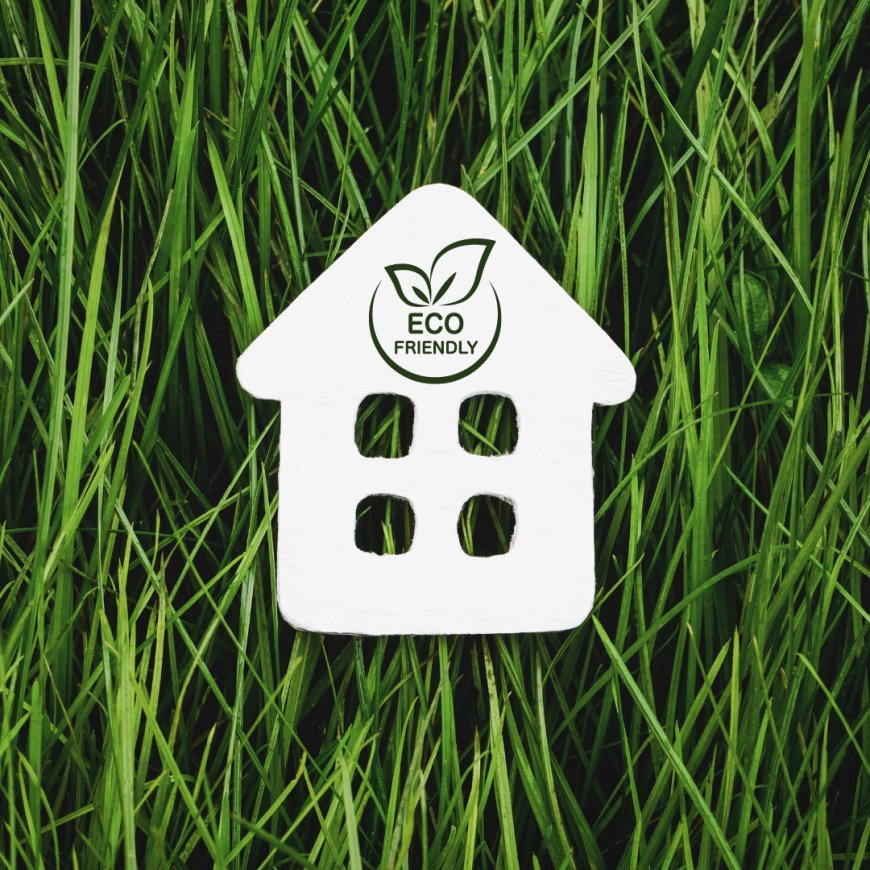"The Ultimate Guide to Sustainable Living: Simple Eco-Friendly Habits for a Greener Future"
Discover easy and practical eco-friendly habits to embrace a sustainable lifestyle. Learn how to reduce waste, conserve energy, and make mindful choices for a greener planet.

As the world grapples with environmental challenges like climate change, pollution, and resource depletion, adopting a sustainable lifestyle has never been more important. Sustainable living is about making choices that reduce your environmental footprint, promote conservation, and protect our planet for future generations. While the concept may sound overwhelming, incorporating eco-friendly habits into your daily routine is easier than you think.
In this guide, we’ll explore practical and simple ways to start living more sustainably, focusing on eco-friendly practices, zero-waste tips, sustainable fashion, and much more.
1. Embrace Energy Conservation at Home
Conserving energy is one of the most impactful ways to live more sustainably. Reducing your household energy consumption not only helps the environment but can also save you money.
- Switch to LED Lighting: LEDs use up to 90% less energy than traditional incandescent bulbs and last longer.
- Install Energy-Efficient Appliances: Energy Star-rated appliances like refrigerators, washing machines, and dishwashers consume less energy while performing just as efficiently.
- Unplug Devices When Not in Use: Devices left plugged in, even when turned off, still consume energy. Unplugging electronics can significantly cut down on "phantom energy" use.
- Consider Solar Power: If possible, install solar panels to reduce your reliance on fossil fuels and take advantage of clean, renewable energy from the sun.
2. Adopt a Zero-Waste Lifestyle
Transitioning to a zero-waste lifestyle can help reduce the amount of trash you send to landfills and lower your environmental impact.
- Say No to Single-Use Plastics: Invest in reusable items like metal straws, cloth shopping bags, glass containers, and stainless steel water bottles.
- Buy in Bulk: Purchasing items like grains, spices, and cleaning supplies in bulk can reduce packaging waste. Many stores now offer refill stations where you can bring your own containers.
- Compost Organic Waste: Composting is an excellent way to reduce food waste and create nutrient-rich soil for gardening. Even small spaces like apartments can accommodate a composting bin.
- Upcycle and Repair: Instead of throwing away old items, consider upcycling or repairing them. Broken furniture, clothes, and electronics can often be repurposed or fixed rather than discarded.
3. Slow Down Your Fashion Consumption
The fashion industry is one of the most significant contributors to pollution and waste. By making mindful choices, you can help reduce the environmental impact of your wardrobe.
- Buy Less, Choose Well: Opt for high-quality, timeless pieces that are durable and versatile, rather than fast fashion items that are cheaply made and quickly discarded.
- Shop Secondhand: Thrift stores, online resale platforms, and clothing swaps are excellent ways to find stylish clothing without the environmental cost of buying new.
- Support Sustainable Fashion Brands: Look for brands that prioritize ethical production, fair wages, and eco-friendly materials like organic cotton, recycled polyester, and hemp.
- Recycle and Donate: When you no longer need an item, consider donating it to a charity or recycling it through a textile recycling program.
4. Make Sustainable Food Choices
Food production has a significant environmental impact, from the resources used to grow and transport food to the packaging waste generated. Making small changes to your diet can reduce your carbon footprint.
- Embrace a Plant-Based Diet: Reducing meat consumption and increasing plant-based meals can significantly lower your environmental impact. Even adopting a flexitarian approach, where you eat less meat, can make a difference.
- Buy Local and Seasonal: Locally grown food reduces transportation emissions, and seasonal produce typically requires fewer resources to grow.
- Reduce Food Waste: Plan meals ahead, store food properly, and get creative with leftovers to minimize waste. Apps like "Too Good to Go" help reduce food waste by connecting consumers with unsold food from local stores and restaurants.
- Choose Organic and Sustainable Foods: Organic farming avoids the use of synthetic pesticides and fertilizers, promoting soil health and biodiversity.
5. Opt for Eco-Friendly Transportation
Transportation is another significant source of greenhouse gas emissions. Shifting to more sustainable modes of travel can greatly reduce your impact.
- Walk or Bike Whenever Possible: Walking and biking are not only good for the environment but also for your health. They reduce your carbon footprint and save money on fuel.
- Use Public Transportation: Trains, buses, and subways are efficient and eco-friendly alternatives to driving.
- Carpool or Rideshare: Carpooling with friends or colleagues reduces the number of vehicles on the road, helping to cut down emissions.
- Consider Electric Vehicles (EVs): If you're in the market for a new car, electric vehicles are a cleaner alternative to gasoline-powered cars.
6. Reduce Water Usage
Water is a precious resource, and conserving it helps preserve ecosystems and ensure availability for future generations.
- Install Low-Flow Fixtures: Low-flow showerheads, faucets, and toilets can drastically reduce water usage without sacrificing performance.
- Fix Leaks Promptly: A dripping faucet or running toilet can waste thousands of gallons of water each year. Fixing these leaks quickly is an easy way to conserve water.
- Reuse Gray Water: Water from sinks and showers can be reused for watering plants or flushing toilets. Installing a gray water system can make your home even more eco-friendly.
- Practice Smart Landscaping: Choose native plants that require less water and adopt xeriscaping techniques to create a drought-resistant garden.
Final Thoughts on Sustainable Living
Sustainable living is not about perfection; it's about making mindful choices that contribute to a healthier planet. By incorporating these eco-friendly habits into your daily life, you can play a part in reducing environmental damage and promoting a greener, more sustainable future. Start small, be consistent, and remember that every action counts.
Conclusion: Sustainable living is a journey, and by adopting these simple yet impactful habits, you can make a significant difference. Whether it's reducing waste, conserving energy, or making sustainable food and fashion choices, each step you take brings us closer to a greener planet.
What's Your Reaction?














































































